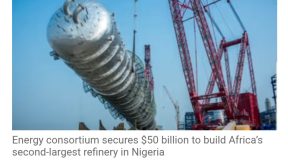Despite an increase in refining capacity, Nigeria still imported 69% of the 21.68 billion litres of petrol consumed between August 2024 and early October 2025, according to the Nigerian Midstream and Downstream Petroleum Regulatory Authority (NMDPRA).
The data showed that 15.01 billion litres were imported, while 6.67 billion litres came from domestic refining — largely from the Dangote refinery, which began petrol production in September 2024. Although imports dominated for most of the 15-month period, local refining has steadily grown.
Imports averaged 54.3 million litres per day in September 2024 but declined to 15.1 million litres by early October 2025. Meanwhile, local output rose from 6.43 million litres per day in September 2024 to about 20 million litres per day in 2025, peaking at 22.66 million litres in January. By October 2025, Dangote’s daily production exceeded import volumes.
Total daily petrol supply fell from 60.73 million litres in September 2024 to 34.04 million litres in October 2025, reflecting both reduced demand and shifting supply dynamics. The NMDPRA noted that the refinery now contributes around 20 million litres per day to the local market.
Dangote officials said the refinery has over 310 million litres of petrol in storage and has begun exporting to countries including Saudi Arabia and those in the Middle East. Between June and July 2025, it reportedly exported about one million tonnes of petrol.
While Nigeria remains partly dependent on imported fuel, the rise in domestic refining marks a major transition. The Dangote refinery’s growing output and competitive pricing signal a gradual shift toward energy self-sufficiency, though competition and market adjustments continue to shape the new petroleum landscape.

